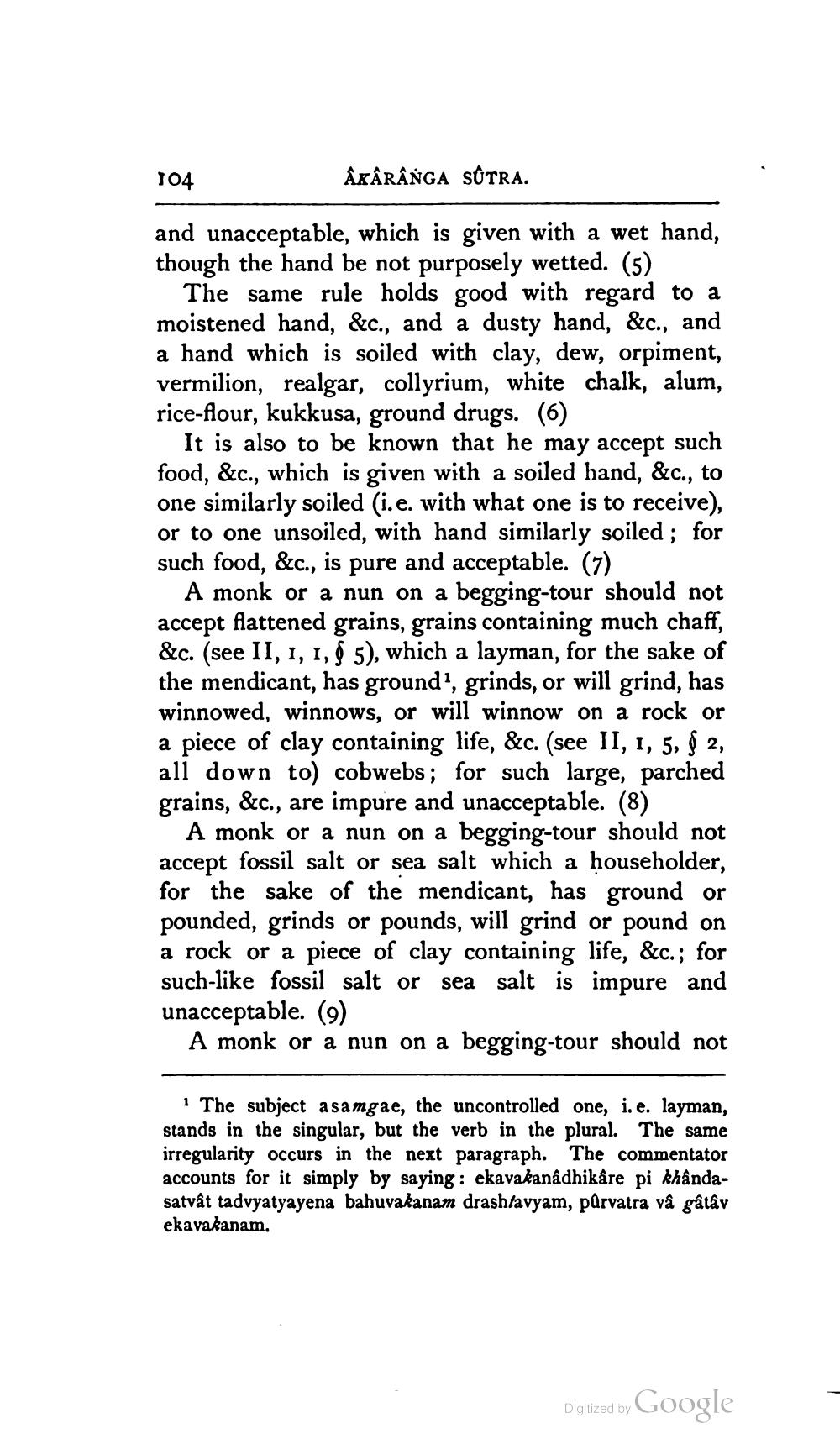________________
104
ÂRÂRÂNGA SÚTRA.
and unacceptable, which is given with a wet hand, though the hand be not purposely wetted. (5)
The same rule holds good with regard to a moistened hand, &c., and a dusty hand, &c., and a hand which is soiled with clay, dew, orpiment, vermilion, realgar, collyrium, white chalk, alum, rice-flour, kukkusa, ground drugs. (6)
It is also to be known that he may accept such food, &c., which is given with a soiled hand, &c., to one similarly soiled (i.e. with what one is to receive), or to one unsoiled, with hand similarly soiled; for such food, &c., is pure and acceptable. (7)
A monk or a nun on a begging-tour should not accept flattened grains, grains containing much chaff, &c. (see II, 1, 1, $ 5), which a layman, for the sake of the mendicant, has ground', grinds, or will grind, has winnowed, winnows, or will winnow on a rock or a piece of clay containing life, &c. (see II, 1, 5, § 2, all down to) cobwebs; for such large, parched grains, &c., are impure and unacceptable. (8)
A monk or a nun on a begging-tour should not accept fossil salt or sea salt which a householder, for the sake of the mendicant, has ground or pounded, grinds or pounds, will grind or pound on a rock or a piece of clay containing life, &c.; for such-like fossil salt or sea salt is impure and unacceptable. (9)
A monk or a nun on a begging-tour should not
The subject asamgae, the uncontrolled one, i.e. layman, stands in the singular, but the verb in the plural. The same irregularity occurs in the next paragraph. The commentator accounts for it simply by saying: ekavakanadhikâre pi khandasatvat tadvyatyayena bahuvakanam drashtavyam, půrvatra và gâtav ekavakanam.
Digitized by Google




